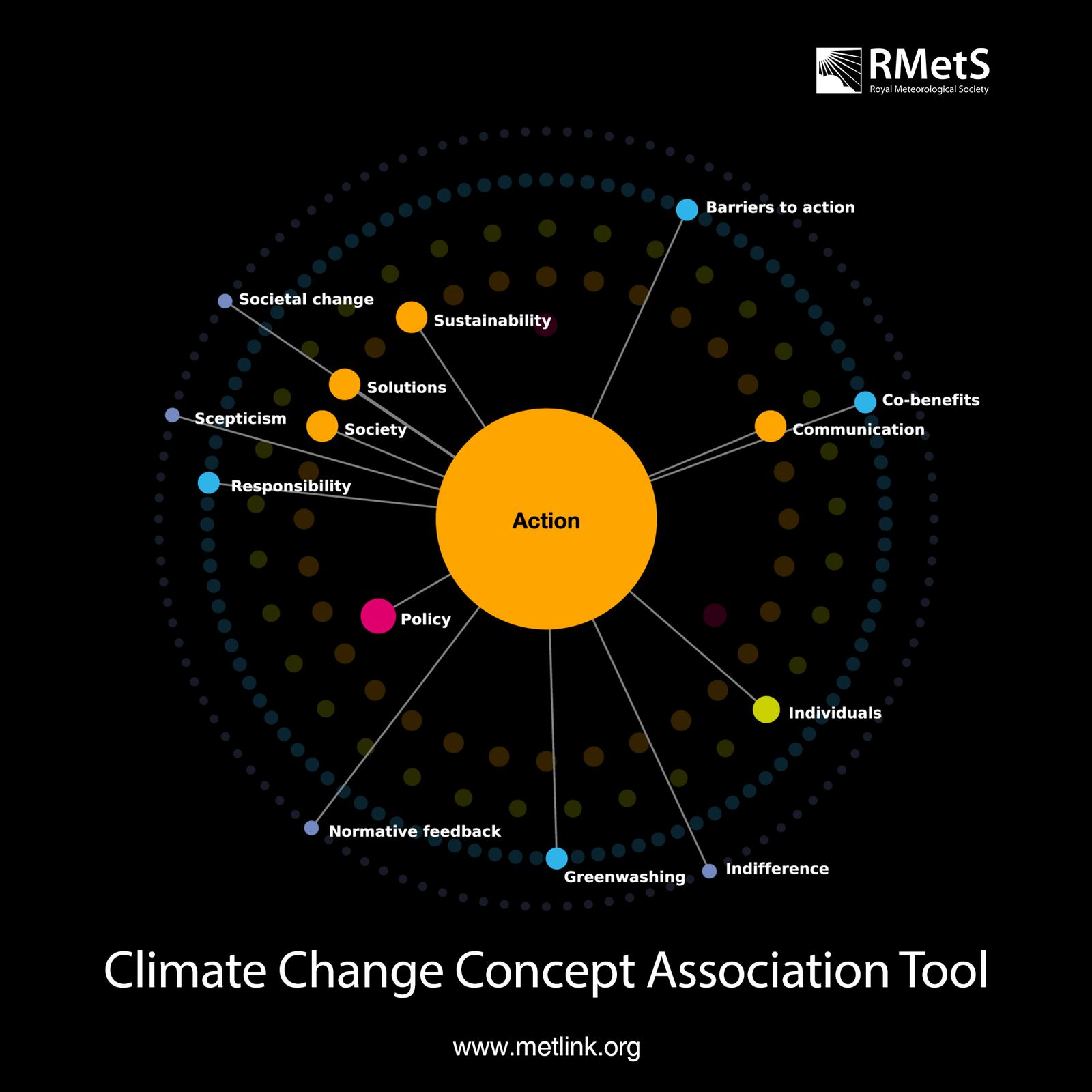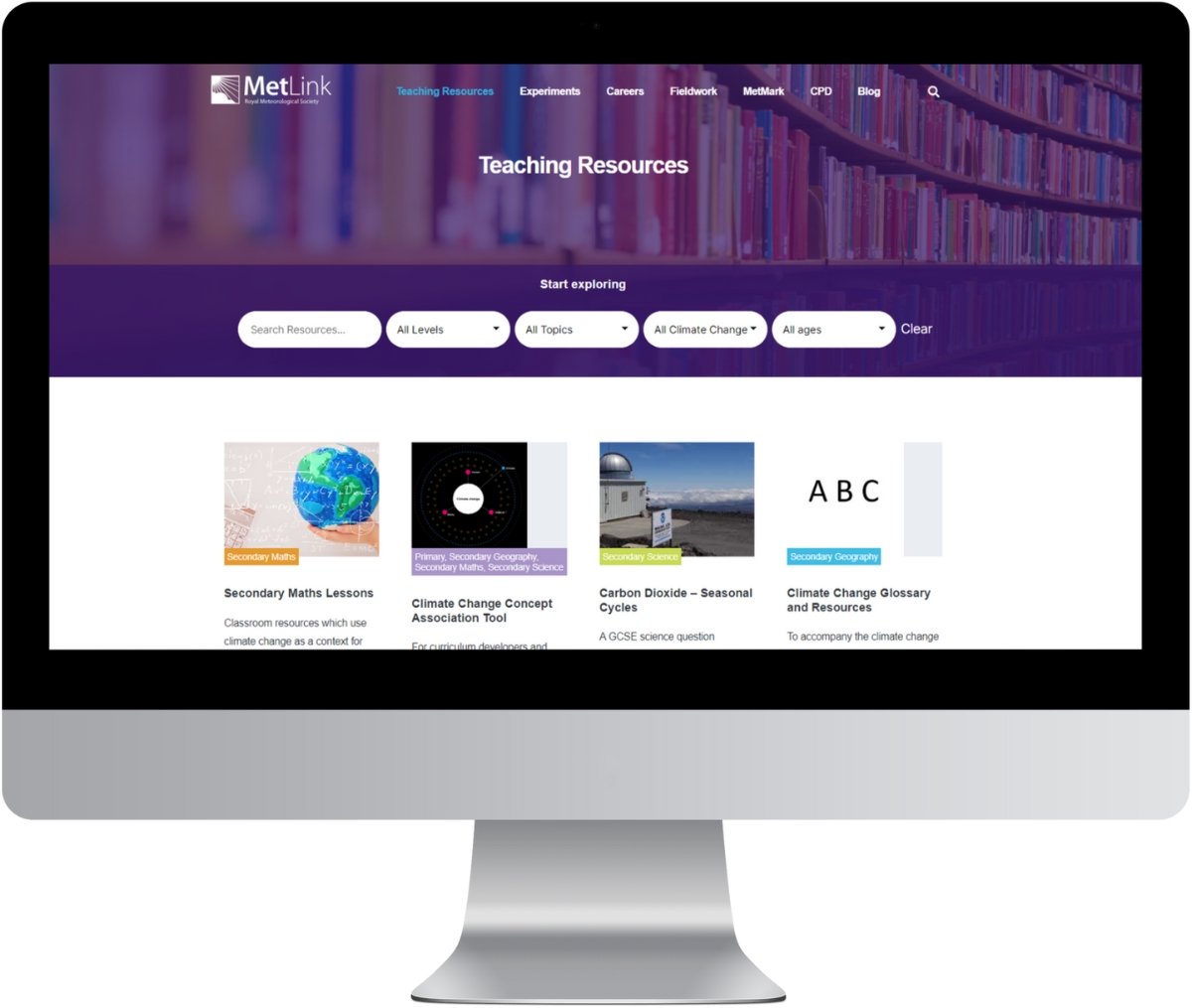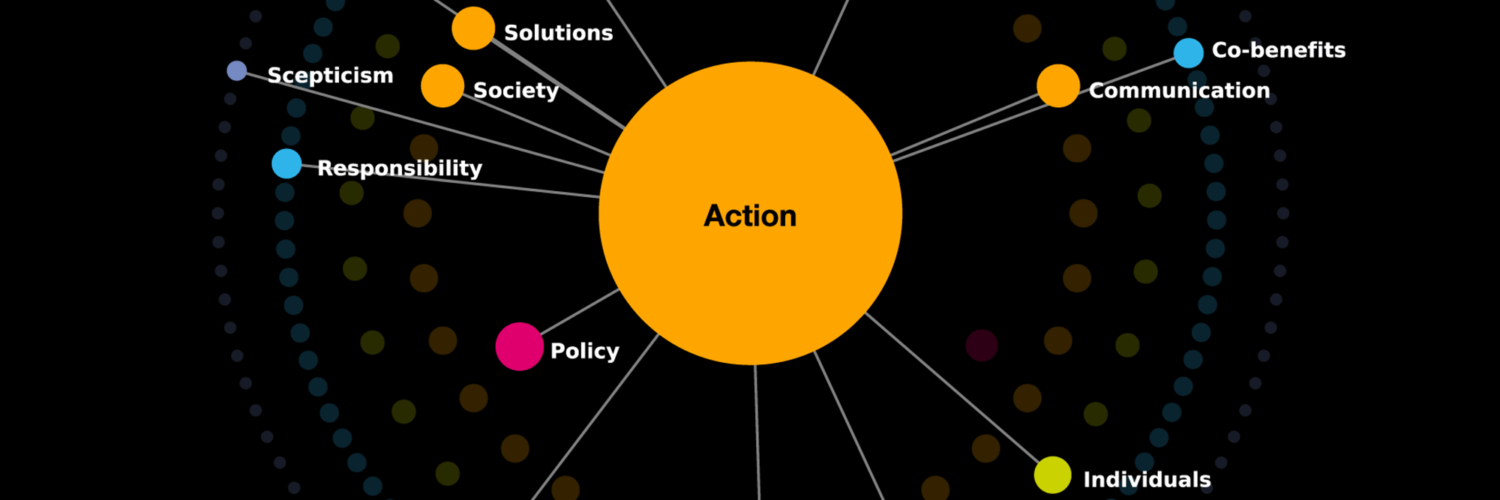RMetS’ education programme has taken an exciting step forward with the release of an innovative tool intended to help curriculum developers and other communicators understand the diverse range of concepts associated with climate change and the links between them.
The interactive Climate Change Concept Association Tool, available for free through MetLink, brings together more than three hundred climate change concepts in an engaging illustration of how they are linked. Through its MetLink education platform, RMetS also provides a helpful glossary of terms featured within the tool, along with a vast range of free teaching and learning resources – including many RMetS Verified Climate Education Resources.
The development of the tool is founded in RMetS’ belief that every student should leave school with the basic climate literacy that would enable them to engage with the messages put forward by the media or politicians, or to make informed decisions about their own opportunities and responsibilities.

The new interactive tool is for curriculum developers and other communicators to explore the diverse range of concepts associated with climate change and the links between them.
For curriculum developers and teachers
With climate change a pressing global concern, it is paramount that educators can access tools that enhance the effectiveness of climate change education and help to improve the climate literacy of school leavers. At an international scale, the UN’s COP process under the Paris Agreement now requires all countries to report on their Action for Climate Empowerment – including education.
Climate change is a broad and diverse subject that goes beyond the science of how the Earth’s climate system works and how the climate is changing. So, what aspects of climate change should, could or are we teaching in schools?
The new Climate Change Concept Association Tool provides an opportunity to explore and evaluate the coverage of various aspects of climate change within proposed curricula. It enables curriculum developers to identify gaps, missed links, duplication, or inadequate progression in their approach to teaching the subject.
This could be used by those developing new curricula – whether at the level of individual schools, Academy trusts or nationally – or by those developing assessment questions.
For example, in geography, the tool can help non-specialist teachers to appreciate the relevance of climate change to a broad range of topics, including migration and tourism. Alternatively, someone developing a new scheme of work and wanting to include the impacts of climate change can use the tool to explore new angles, links or approaches to use.

The new tool is available through RMetS’ MetLink education platform, which offers many free teaching resources for educators.
For science and sustainability communicators
Despite growing awareness among the public, misinformation about climate change is still widely reported. In the latest Public Attitudes Tracker conducted by the UK’s Department for Energy Security and Net Zero (DESNZ), 47% of respondents agreed that ‘there is so much conflicting information about climate change, it is difficult to know what to believe’.
Science communicators – meaning researchers, professionals, journalists, broadcasters, CEOs and community leaders – play a vital role in helping people to understand the world around them, building trust and encouraging participation in science, and promoting scientific literacy.
Simple and quick to use, the RMetS’ Climate Change Concept Association Tool aids science communicators in identifying and addressing gaps in climate change communication, making messages more relevant and significant, ultimately promoting better audience understanding.
Whether the user is an Academic publishing their latest research, or a Marketer creating a press release for an organisational sustainability initiative, the Climate Change Concept Association Tool will help communicators deliver a more complete and compelling account that resonates more effectively with their audience.
Professor Sylvia Knight, Head of Education at the Royal Meteorological Society, said, “We are committed to improving the climate literacy of school leavers in the UK, and in helping often non-specialist, time-pressured teachers to deliver accurate and relevant climate change education. The new Climate Concept Association Tool helps curriculum developers to take a holistic approach to the subject, and the accompanying teaching resources make it easy for teachers to develop informative and engaging lesson plans. We encourage people to try it out and tell us about their insights.”
Try the Climate Change Concept Association Tool
Source: rmets.org








 Please wait...
Please wait...

Add comment